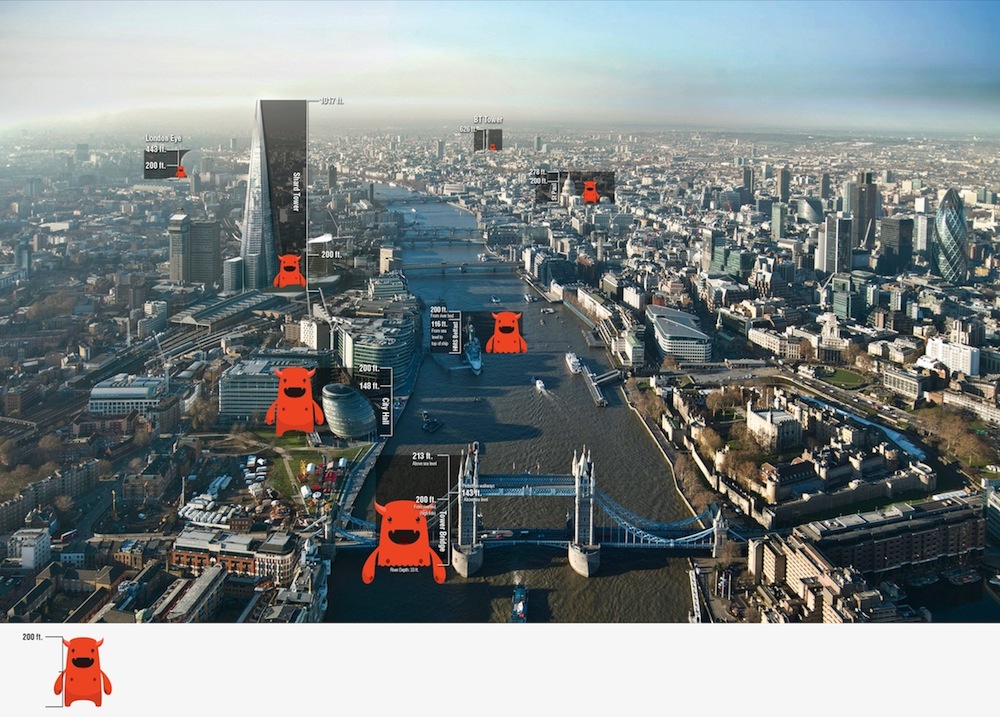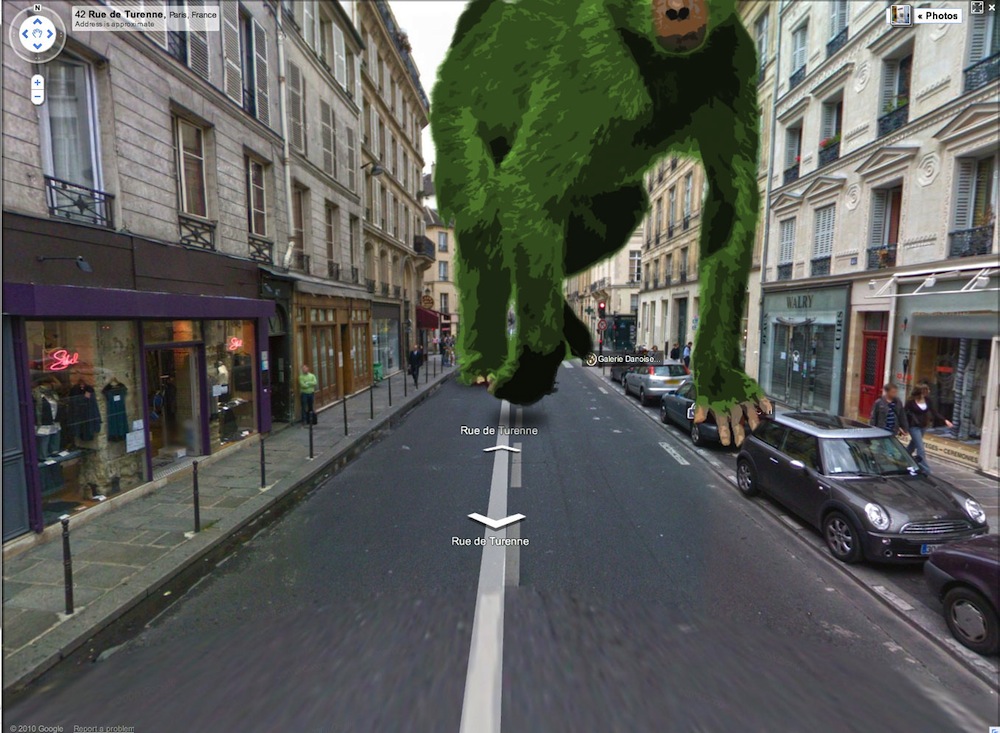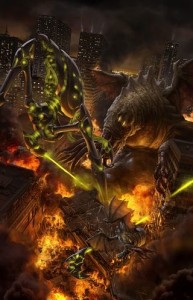In [episode 93 of Scriptnotes](http://johnaugust.com/2013/lets-talk-about-nikki-finke), Craig and I talked about how storyboarding software (like Amazon’s new Storyteller) is largely a waste of time for screenwriters, who should be focusing on words rather than pictures.
That said, I’ve occasionally found it useful to use images so I know what the hell I’m writing. I’ll use Google Street View to check out a city, or search for photos of the Badlands.
And in the case of the never-will-get-made Monsterpocalypse, ((cf. this summer’s Pacific Rim.)) in 2010 I asked Ryan Nelson to make some graphics for me so I could keep the scale of things consistent.
The script opens with an attack on London by an alien creature.
Vaporous blue flames seep through cracks in the crust. Suddenly, the meteor begins to move. The shell splits and slides in articulated sections, folding open like an elaborate puzzle.
It rolls forward, then begins to rise. It’s only then we get a sense of its true scale.
Two hundred feet tall, it towers over nearby buildings. Its massive claws could lift a 747.
Here’s what 200 feet looks like in practice:

Note that Ryan’s monster is deliberately adorable. In case I needed to show the image to others on the team, I didn’t want it to seem like I was trying to design the creature, just the size of it.
Ryan’s image really helped. It was clear that the creature couldn’t really walk through the city as much as on top of it. The London Eye would still be big — probably too big for him to throw (for example).
Later in the story, we encounter animals that have become gigantified in the decade following the initial attack. I wanted them to be big, but not so large they couldn’t navigate a city like Paris.
Ryan’s challenge was to find a scale that made sense. Keeping these creatures about 40 or 50 feet tall seemed to work best.


This kind of screenwriter previz is uncommon, so I don’t want to feed the fires of insecurity or distraction (“I can’t write that scene until I learn Photoshop!”). I had the luxury of having a graphic genius on the payroll and 20 feet away. These comps certainly helped me, but I could have written the same script without them.
I didn’t have these images when pitching the project, but that’s one situation in which a screenwriter might consider spending money for artwork — or buying some beer for a talented artist friend. If you have to pitch a project in which many elements are uniquely visual, having something to show might make sense.
Is your story set in a futuristic undersea world of sentient sharks? That might need a picture.
Otherwise, stick to your words.
